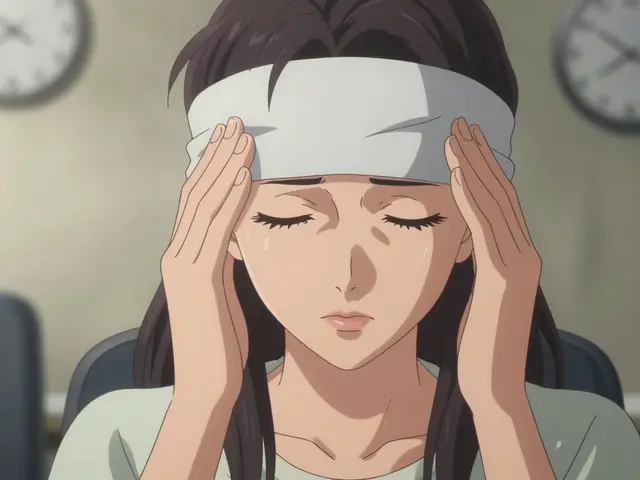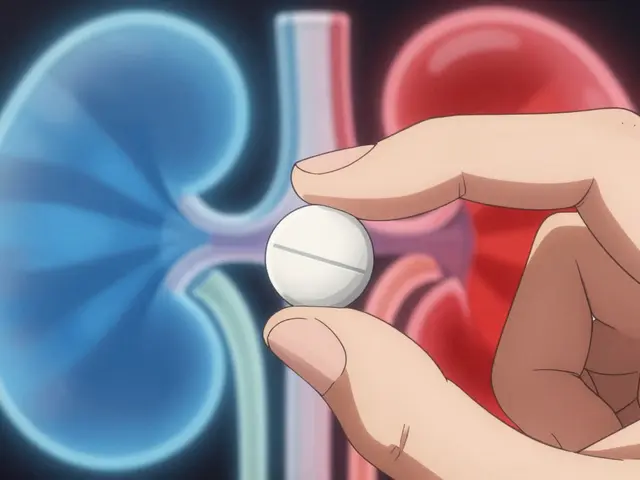Hypertrophic subaortic stenosis: what it looks like and what to do
Hypertrophic subaortic stenosis (HSS) is when the heart muscle below the aortic valve gets thick and narrows the exit from the left ventricle. That narrowing makes the heart work harder and can cause chest pain, shortness of breath, fainting, or palpitations. Some people have mild narrowing and never notice symptoms, while others have severe obstruction that needs treatment fast.
How doctors find HSS starts with a good history and exam. Your doctor will listen for a harsh murmur and ask about symptoms during activity or when you stand up. An echocardiogram is the main test—it shows how thick the muscle is and how much the outflow tract is blocked. Other useful tests include ECG, stress testing, and sometimes cardiac MRI or CT to map the anatomy more clearly.
Treatment options that actually work
Treatment depends on how bad the obstruction is and how you feel. For many, medicines like beta blockers or calcium channel blockers reduce symptoms by slowing the heart and lowering the pressure gradient. If symptoms continue despite drugs, procedures are options. One is septal myectomy, a surgical removal of part of the thickened muscle. Another is alcohol septal ablation, a less invasive catheter procedure that shrinks the thick area. Your cardiologist will weigh risks and benefits and discuss which fits your body and lifestyle.
Living with HSS means paying attention to triggers and making smart choices. Avoid intense competitive sports unless cleared by a specialist—sudden exertion can raise risk. Stay hydrated, know which medicines to avoid (some can worsen obstruction), and get regular follow-up including repeat echocardiograms when advised. If you have family members with unexplained thick hearts or early sudden death, ask about genetic testing—hypertrophic conditions often run in families.
Know when to act: call your doctor if you get new or worsening chest pain, fainting, repeated dizziness, or if breathlessness limits normal activities. Seek urgent care for sudden fainting or severe shortness of breath. Proper treatment lowers risk and helps most people return to normal activities.
Diagnosis tips
Diagnosis tips: an echo measures wall thickness and the peak gradient across the outflow tract; gradients over 30 mmHg at rest or with provocation are meaningful. An exercise echo can show symptoms that appear only with activity. ECG may show left ventricular hypertrophy or abnormal rhythms. If family history is present, genetic testing often looks for mutations in MYH7 and MYBPC3. If a mutation is found, first-degree relatives should get a check-up and an echo.
Treatment choices: beta blockers, verapamil, or disopyramide can help. Avoid nitrates and diuretics. For high-risk patients, ICDs reduce sudden-death risk. Talk with a cardiologist about options.
If you’re researching options, bring notes to appointments: list symptoms, timing, family history, and medicines. Ask how each treatment could change your daily life, recovery time, and what follow-up looks like. A clear plan and good communication with your care team make a big difference.
Research is ongoing on devices, medications, and genetics that affect care. If you want detailed guides or articles on specific treatments, tests, or how this condition intersects with men's health topics like fitness and medications, check related posts and talk with your cardiologist.

Hypertrophic Subaortic Stenosis in Athletes: How to Stay Safe and Perform at Your Best
In the world of heart-pounding, adrenaline-fueled sports, hypertrophic subaortic stenosis (HSS) can be a real party pooper, folks! It's a heart condition that can cause some serious roadblocks for athletes, but fret not, we've got some tips and tricks to help you navigate this tricky terrain. First and foremost, regular check-ups are key - your heart is your engine, after all, and even Ferraris need a tune-up! Proper diet and exercise routines can also keep things running smoothly. So, while HSS may sound like a villain from a comic book, with the right care and attention, you can keep on performing at your best and leave HSS in the dust!




